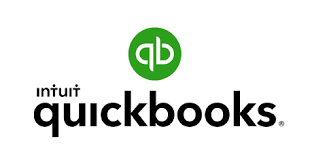Giving students a solid foundation in the ideas and practices of finance and accounting is the aim of the Fundamental Accounting course. This comprehensive course, which covers a wide range of subjects, will be highly helpful for anybody who want to understand the financial side of a firm.
Course Objectives
- Understand The Need For Accounting Data In Different Business Sectors.
- Have a thorough understanding of accounting’s many facets and how they relate to both personal and professional life;
- Understanding the various management functions of organizing, directing, and controlling; being proficient in reading and analyzing financial statements;
- Being knowledgeable about the various accounting concepts and conventions;
- Understanding what is included in financial statements and how they are prepared;
- Understanding how accounting skills help with tax planning;
- And establishing coordination amongst various departments through the seamless flow of financial information.
Course Outline
- Understanding the Foundations of Accounting
- Information Gathering for Accounting: Components of Financial Accounts
- International Standards for Reporting and Accounting
- Analyzing the Investment Capital Financial Statement, Budgeting Process, and Expense Accounting Management
Course Benefits
Following a successful completion of this course, participants’ organizations will benefit from the following:
- Provide accounting information to different departments according to their specific needs.
- Encourage effective planning through future projections, budget preparation, and income forecasting.
- Encourage efficient stock valuation and quantification in order to support efficient inventory control.
- To assess the company’s financial soundness, look at its profitability and overall financial situation.
- Encourage the application of cost-control and cost-cutting measures in order to assist in reaching cost objectives.
- Confirm compliance with all applicable laws and regulations.
- Look into business growth and assess the company’s position against competitors.
- Keep adequate cash on hand and manage cash flow well.
- Promote departmental and business collaboration
Audience
HR, marketing, manufacturing, finance, and small business ownership executives and managers Accounting assistants, retail investors, relationship managers, financial analysts, financial counselors, and financial planners
Overview
Accounting is essential to our everyday administration, even on a personal level. This includes financial methods for projections, bills, personal budgets, and income forecasts for the future. Accounting is not just used by accountants. Accounting is one ability that is used in both personal and professional contexts.
Accounting is the systematic process of documenting financial transactions, classifying them, and presenting the results in a manner that makes the most sense for those who use financial information.
All of us have unintentionally used accounting ideas in one way or another throughout our daily lives. All of us have utilized the fundamentals of accounting at some point, whether it is for personal budgeting, financial management, future planning, or income projection.
There’s a common misconception that accounting is the domain of accountants alone. However, the majority of individuals nowadays concur that it’s a crucial life skill that applies to both personal and professional contexts. It might be disastrous for managers and business owners alike to be ignorant of accounting concepts and language.
It is comparable to driving a car while wearing a blindfold. Even if you are a skilled driver, accidents will always occur because you are unable to detect traffic or signals. The accounting department is often considered the cornerstone of a firm.
In this lengthy course, you will learn the principles of double-entry bookkeeping as well as how to record and assess financial transactions. You will obtain hands-on experience with sales taxes, accounts payable, receivable, payroll procedures, and other common banking duties.
Accounting Fundamentals covers everything, from writing cheques to preparing an income statement and closing accounts at the end of each fiscal period. Whether you’re a lone proprietor attempting to manage your company’s finances or you simply want to study the principles of accounting for personal use or career advancement, this course will provide you a solid foundation in financial matters.





